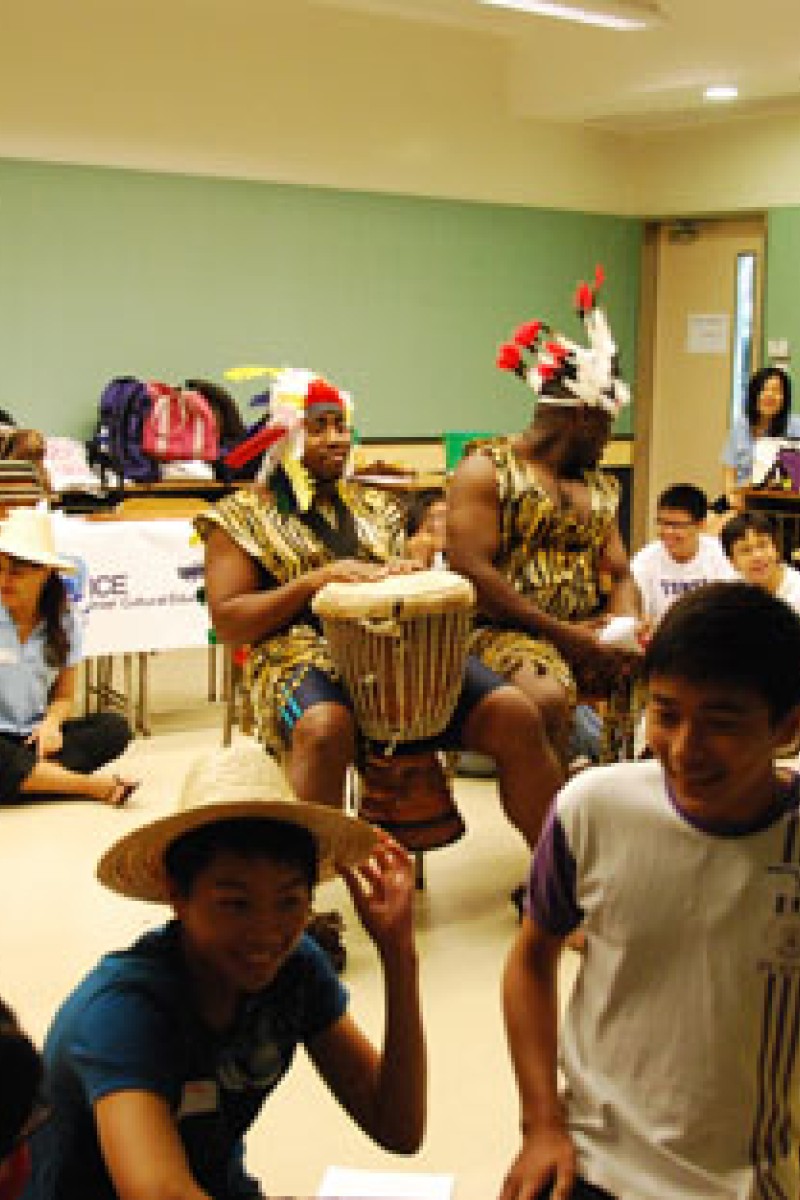 ICE founder Freddy Law with South Asian students at one of his workshops in Hong Kong.
ICE founder Freddy Law with South Asian students at one of his workshops in Hong Kong."At the beginning, I worked as a volunteer teaching minority children in Hong Kong Chinese," says Law, 25. "One little girl was not interested in learning Chinese and I asked her why. She told me even if she could speak the language, she would still face discrimination."
It was a shocking answer that lingered in Law's mind. After three months, he was hired by Google as a human resources management trainee. He left Hong Kong for its India office and worked with a multicultural team of 56 nationalities.
"It was a very international office; I felt like I was working for the United Nations," he says. "There were many chances for us to discuss world issues from our own cultural perspectives. The experience made me reflect on the diversity in our world and how we take a lot of things for granted."
After Google, he was hired as a vice-president of an international talent management office in Eastern Europe.
"Suddenly I became the minority there. It was the first time I had felt discrimination."
After 10 months, he returned to Hong Kong. "My experience in multiculturalism over the years has opened my eyes," Law says. "I am constantly thinking about how to create a truly global environment in Hong Kong. I felt a burning desire to do something about it."
In February last year, he set up Inter Cultural Education (ICE), a social enterprise to expose young people to global perspectives and bridge the gap between different races in Hong Kong. His goal is to have a global team running a global project.
"Our team and workshop trainers come from around the world: Hong Kong, the mainland, Sweden, Africa and Europe," Law says.
The team offers students workshops on global responsibilities, critical thinking and creativity, aspirations and dreams, as well as language and culture.
Another goal of ICE is to help minority groups in Hong Kong integrate with society. The best way to achieve this is by recruiting from those communities. "We hired an African musician who lives in Hong Kong to run a workshop on Africa," Law says. "And we found a Pakistani young man who is a magician and very good at breakdancing for our workshops."
While the work is fulfilling, Law says there's a price to pay - he and his team did not get salaries in the first year.
Schools have responded well to ICE's work. More than 200 secondary students have taken part in workshops. The group has also received a grant from the Quality Education Fund.
If you are involved in a change-making project like ICE, let the world know about it by entering the Make a Difference (MaD) Award organised by the Hong Kong Institute of Contemporary Culture before the deadline on November 15. Details can be found at www.mad.asia
